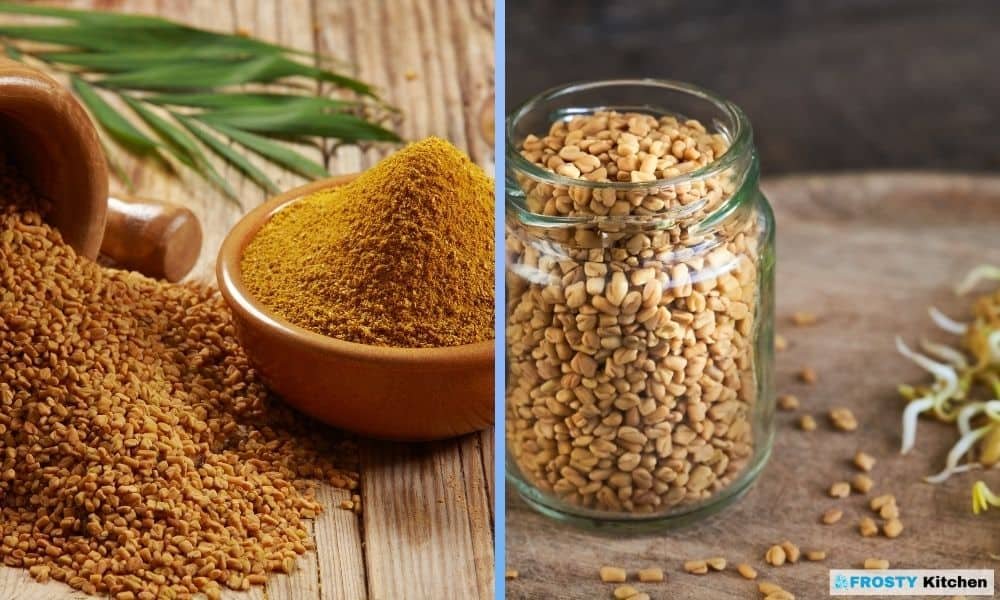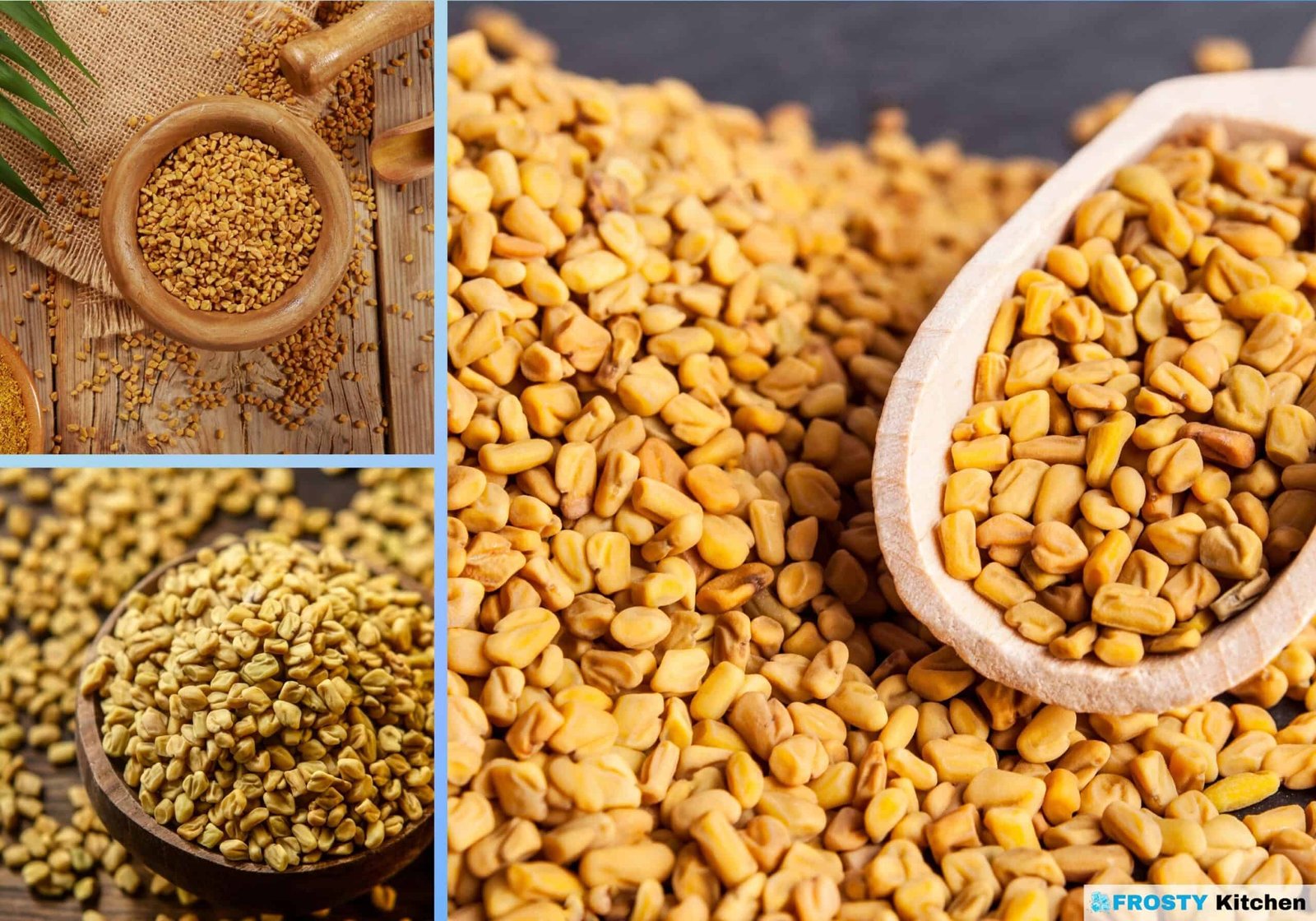The culinary domain is one of endless exploration, and amidst this, Fenugreek Seeds emerge as a cherished ingredient known for their aromatic and health-enriching attributes. Whether it’s their characteristic bitter flavor enhancing the taste profile of a dish or their myriad health benefits, Fenugreek Seeds are a valued asset in any kitchen. This guide delves into the art and science of storing Fenugreek Seeds, ensuring their freshness and potency remain unaltered, ready to enhance your dishes whenever the culinary muse beckons.
What are Fenugreek Seeds?
Fenugreek Seeds, known scientifically as Trigonella Foenum-Graecum, is a staple in many traditional cuisines, especially in Indian, Middle Eastern, and North African cooking. They are renowned for their distinct bitter, maple-like flavor and are used both as a spice and a medicinal herb. Besides their culinary uses, Fenugreek Seeds are often hailed for their health-enhancing properties, making them a versatile ingredient in both the kitchen and natural remedy cabinet.
The seeds are often ground into a powder for easier incorporation into dishes or can be used whole, depending on the specific culinary application. Their unique flavor profile can elevate many dishes, while their nutritional and medicinal properties add a wholesome aspect to their usage.
Origin and History
The history of Fenugreek Seeds traces back to ancient times, with mentions found in Egyptian papyrus scripts as far back as 1500 BC. They have been traditionally used in Ayurvedic and Chinese medicine for their health-promoting properties, and their culinary usage spans various cultures, prominently in Indian, Middle Eastern, and North African cuisines.
Over centuries, the use of Fenugreek Seeds has expanded globally, with many cultures embracing its unique flavor and health benefits. From enhancing the taste of curry dishes to acting as a natural remedy for various ailments, Fenugreek Seeds have cemented their place in both culinary and medicinal realms.
Nutritional Value
Fenugreek Seeds are a rich source of proteins, fibers, and a range of essential minerals like iron, magnesium, and manganese. Additionally, they boast significant amounts of B vitamins and phytonutrients.
- Blood Sugar Control: Fenugreek Seeds have been associated with better blood sugar control due to their fiber content.
- Cholesterol Management: The saponins found in Fenugreek Seeds may help in managing cholesterol levels.
- Digestive Health: The dietary fiber in Fenugreek Seeds supports digestive health by promoting regular bowel movements.
Each of these benefits not only contributes to general wellness but also positions Fenugreek Seeds as a valuable addition to a balanced diet, providing both taste and health benefits.

Importance of Proper Storage for Fenugreek Seeds
Proper storage of Fenugreek Seeds is crucial to maintain their aromatic essence, taste, and nutritional value. Without proper storage, they can lose their flavor, aroma, and health-enhancing attributes.
General Lifespan and Preservation
When stored correctly, Fenugreek Seeds can retain their quality for up to 2-3 years. A controlled environment with cool, dark, and dry conditions can significantly extend their lifespan, keeping them ready for culinary use.
Factors Affecting the Lifespan of Fenugreek Seeds
Several factors can affect the lifespan and quality of Fenugreek Seeds. A clear understanding of these factors can help ensure their prolonged freshness and effectiveness.
Temperature
A cool environment is crucial for preserving the quality of Fenugreek Seeds. High temperatures can lead to loss of flavor and nutritional value.
Exposure to Light
Light can degrade the quality of Fenugreek Seeds. Storing them in a dark place or in opaque, airtight containers is advisable.
Moisture Content
Moisture can lead to mold growth and spoilage. Keeping Fenugreek Seeds in a dry environment is essential for their longevity.
Packaging
Proper packaging prevents exposure to air and moisture, which can degrade the quality of Fenugreek Seeds. Airtight containers or vacuum-sealed bags are ideal choices for storage.
Air Quality
The oxygen content in the air can affect the rate at which Fenugreek Seeds go rancid. Vacuum sealing or using oxygen absorbers can help in prolonging their freshness.
Signs of Spoiled Fenugreek Seeds
Identifying spoilage in Fenugreek Seeds ensures safety and quality.
Odor
A loss of aroma or an off-putting smell is a clear indication of spoilage.
Texture and Appearance
Changes in texture or appearance, like clumping or discoloration, are signs of spoilage or mold growth.
Preparation for Storage
Preparation is a key phase in ensuring the longevity and preservation of Fenugreek Seeds.
Cleaning
Ensuring that Fenugreek Seeds are clean and free from debris before storage is crucial.
Preparing
Choosing high-quality, unspoiled Fenugreek Seeds for storage is critical. Discard any seeds that look discolored, moldy, or have an off smell.
Picking the Right Packaging/Container
The right packaging or container is crucial for preserving the quality of Fenugreek Seeds. Airtight containers made of glass or BPA-free plastic are ideal choices.
Recommended Types of Containers for Storage
Glass jars with airtight lids, vacuum-sealed bags, or BPA-free plastic containers are excellent choices for storing Fenugreek Seeds. They help protect the seeds from air, light, and moisture, ensuring they remain fresh for a longer duration.
Step-by-Step Guide to Storing Fenugreek Seeds
Method 1: Dry Storage
- Step 1: Ensure the Fenugreek Seeds are clean and dry.
- Step 2: Transfer the seeds into an airtight container.
- Step 3: Store in a cool, dark, and dry place.
Method 2: Freezer Storage
- Step 1: Ensure the Fenugreek Seeds are clean and dry.
- Step 2: Transfer the seeds into a vacuum-sealed bag or airtight container.
- Step 3: Store in the freezer.
Frequently Asked Questions
Q1: Can Fenugreek Seeds go bad?
Yes, like other seeds, Fenugreek Seeds can go bad if not stored properly. They have a natural oil content that can turn rancid over time, especially when exposed to air, light, or high temperatures.
Q2: How can I extend the shelf life of Fenugreek Seeds?
To extend the shelf life of Fenugreek Seeds, keep them in a cool, dark, and dry place. Using airtight containers or vacuum-sealed bags can significantly prolong their freshness and nutritional potency.
Q3: Are there any special considerations for storing Fenugreek Seeds in humid climates?
In humid climates, it’s especially important to keep Fenugreek Seeds in airtight containers to prevent moisture exposure which can lead to spoilage. Storing in a cool and dry place, or even in the refrigerator or freezer, can also be beneficial.

